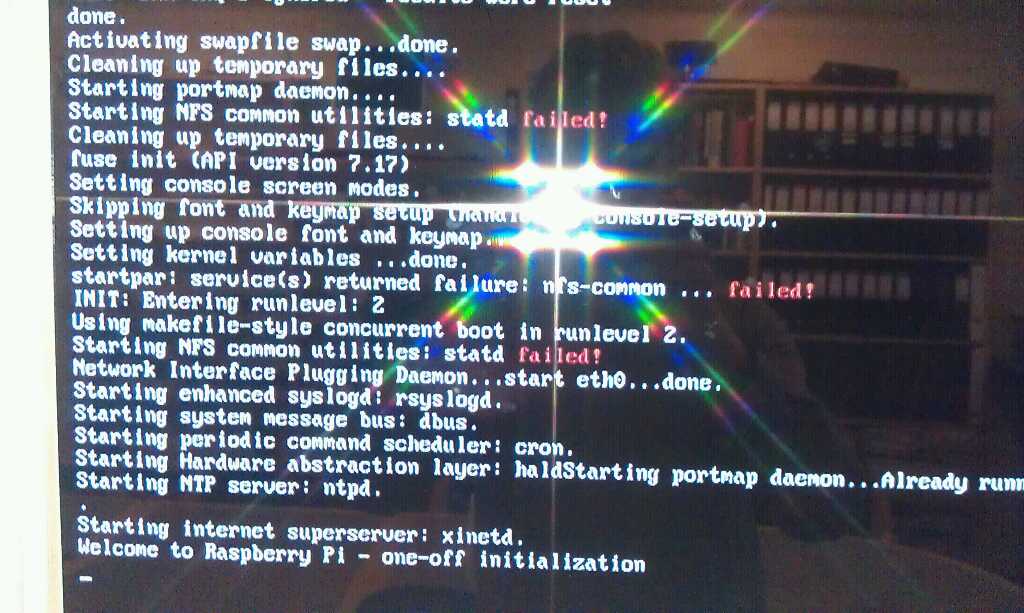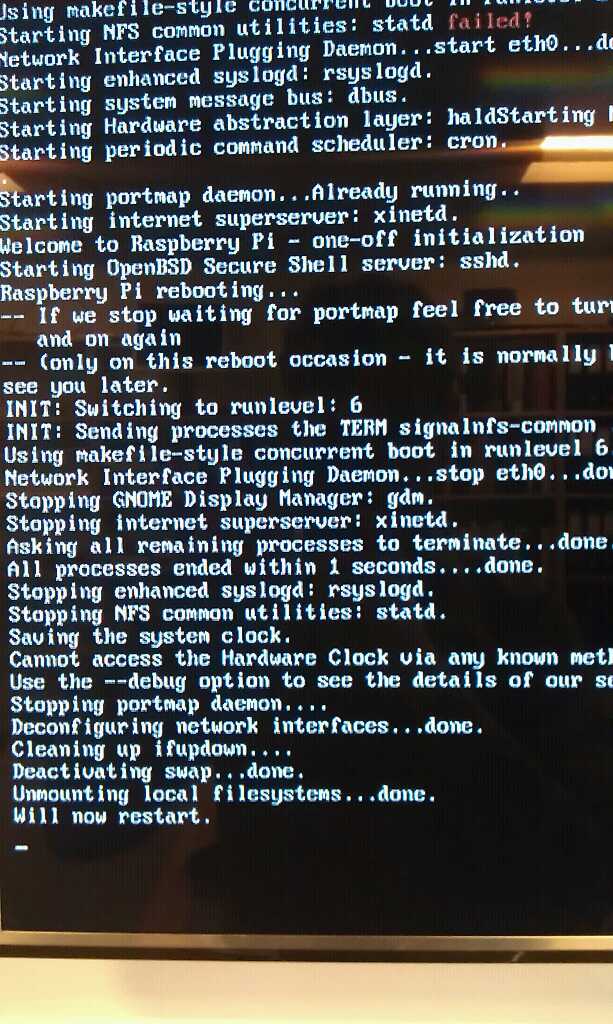I have a Raspberry Pi running Debian. The boot.rc file in the boot partition is replaced with the boot_enable_ssh.rc so that I can access it with ssh. After that did not work, I connected it to a screen and watched the output. The boot process seems to be caught in a loop, it always comes to the "Raspberry Pi rebooting..." output, then some more and then it reboots.
I took two photos of the screen output, I hope it is possible to read and contains enough information:


After the last line in the second picture ("will now restart.") it reboots and comes to the same point. Can someone identify the problem? I noticed that the first mention of rebooting comes directly after the ssh server is loaded.
EDIT:
On a different SD-card but with the same power supply I tried Arch Linux and it worked, so I do not think that the power supply is the problem.

init 6in thatsshscript ;-)boot.rcrather thanboot_enable_ssh.rc?